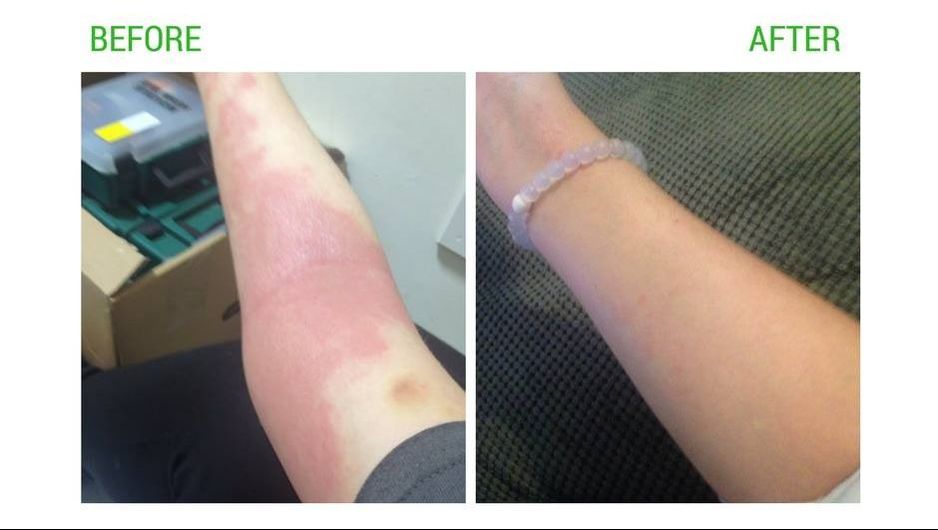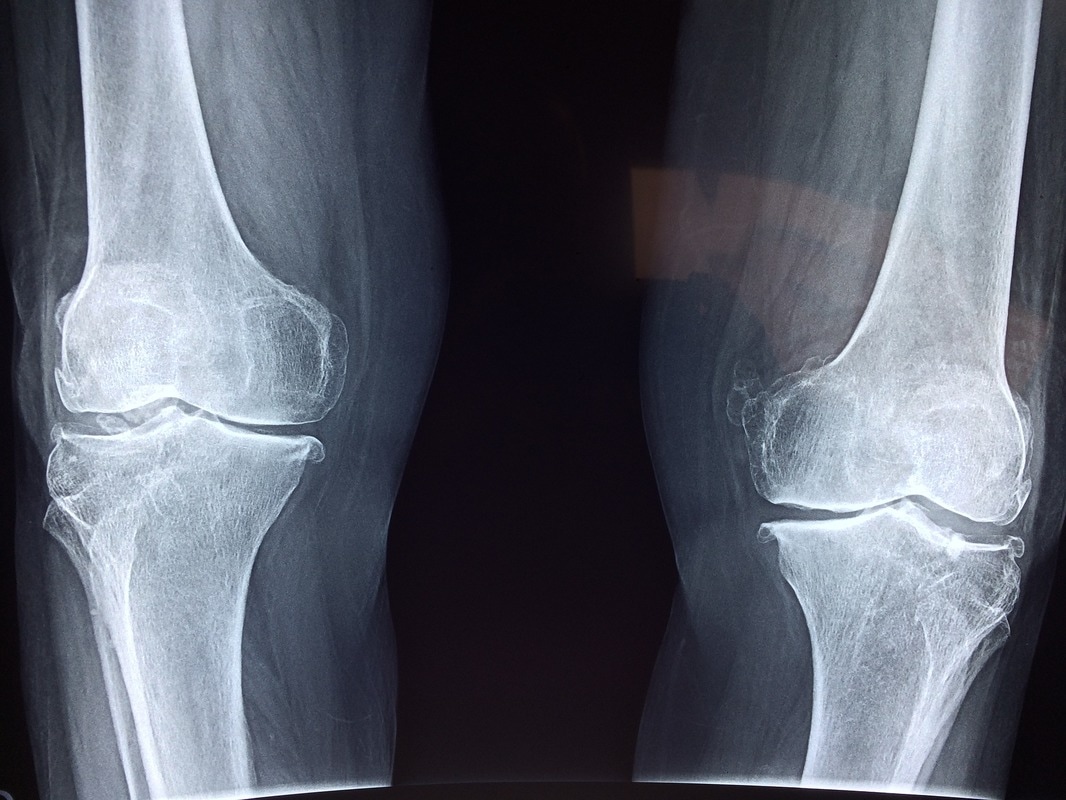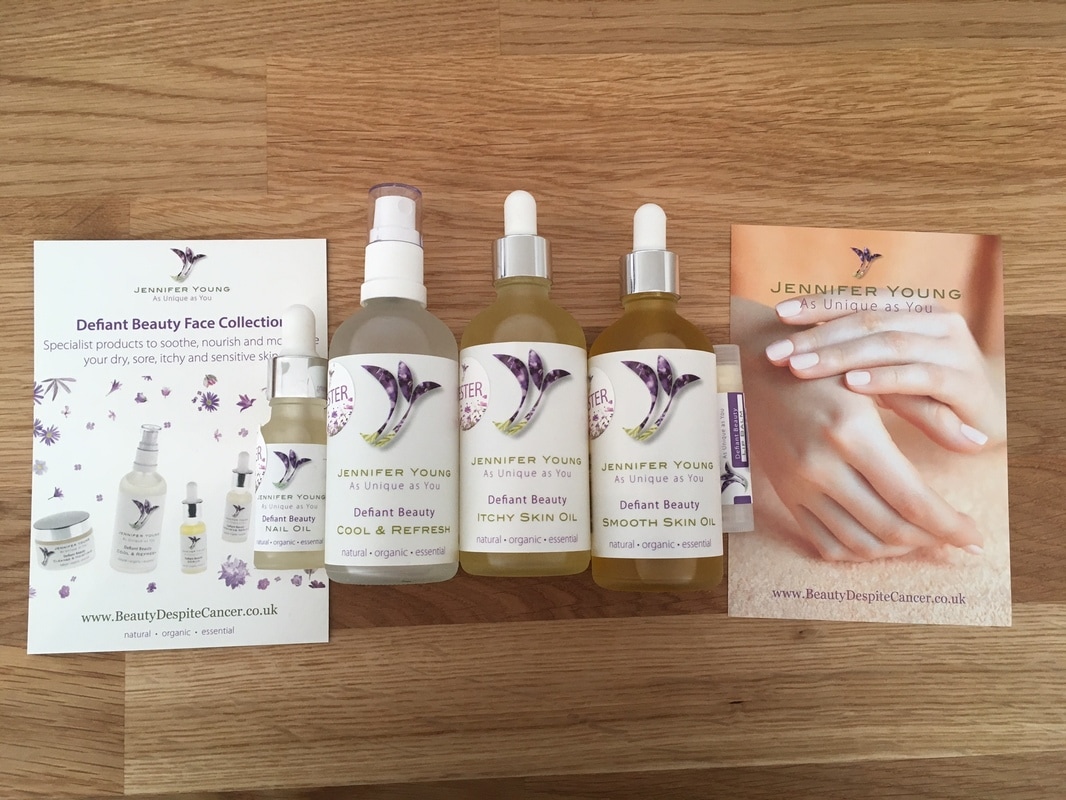|
Over time our joints can wear out and many people experience stiffness and pain as they get older. The good news is that there are lots of things you can do to support yourself to reduce inflammation and support your natural healing processes. With optimal nutrition we can reduce inflammation, protect cartilage, and ensure adequate levels of nutrients are reaching our bones and surrounding ligaments. Reducing Inflammation This topic always reminds me of a physiotherapist who I trained with in Nutritional therapy. What made her train was that she realised that there was only so much she could do as a physio and that to really make impactful change with her patients she needed to address underlying inflammation. One of the most important things we can do to reduce inflammation is to consume good fats. This means increasing anti-inflammatory omega-3s and decreasing inflammatory omega-6s. Ideally, our diets should contain a 1:3 ratio of omega-3 to 6. However sadly most western diets contain far too much with a ratio of nearer 1:16 of omega-3 to 6. To reduce omega 6, avoid processed vegetable oils like sunflower and corn which are often found in processed foods. Great sources of omega 3 include oily fish e.g. salmon, mackerel and herring which we should try and eat at least twice a week. Wild fish contain a better ratio of fats so choose them over farmed where possible. Baking fish also helps to preserve the fatty acids much better than frying. Grass fed meat also contains omega 3s in the right ratio whilst grain fed meat should be avoided as it has much higher omega 6. Chia seeds, ground linseed, hemp seeds and walnuts are great plant based sources of omega 3 and can easily be added in to breakfast cereals or sprinkled over fruit and yoghurt. For those struggling to increase their intake, taking a high strength fish oil or flax seed oil can help reduce inflammation and severity of symptoms. Increasing Antioxidants A Finnish study has shown that low serum levels of antioxidants increases the risk of rheumatoid arthritis. A diet rich in antioxidants can help to reduce oxidative stress and inflammation often associated with arthritis and joint pain. The easiest way to up your antioxidants is to eat a rainbow of fruit and vegetables. Curcumin found in turmeric is an antioxidant which has found favour recently as it has anti-inflammatory properties which have been shown to have therapeutic potential for the treatment of crystal-induced arthritis or rheumatoid arthritis. Exercise Exercise has been shown to reduce pain and increase physical function in adults with Osteo-arthritis. Of course, this should be appropriate to your fitness level but gentle exercise such as walking and swimming are just as effective. Exercise combined with a supportive diet will help to reduce excess weight which will then help decrease long term stress on the joints. How can I protect my joints? Glucosamine plays a role in the building of tendons, cartilage and synovial fluid in our joints. Our bodies ability to produce glucosamine is reduced with age. Supplementing with glucosamine helps our bodies to repair cartilage which may otherwise be damaged in arthritic joints. Chondroitin is often taken alongside glucosamine as it has been shown to modify joint based pathologies. MSM has been shown to decrease joint inflammation, improves flexibility and restores collagen production. Research shows that many patients with arthritis, joint pain, stiffness, knee/back problems and a limited range of motion experience a reduction in symptoms and improved quality of life when taking an MSM supplement. Nutrients that can support joint health Vitamins that are key to ensuring our joints stay healthy are Vitamin D, Calcium, Magnesium and Zinc. Vitamin D is really important in joint and bone health. Unfortunately, in the UK many of us are deficient as we just don’t get enough sunshine. Only 10% of our vitamin D requirement comes from food so it’s really important to try and get 20 minutes of sunshine per day (without sun cream which blocks our ability to absorb vitamin D). The NHS now recommend that everyone should supplement with vitamin D as we simply don’t get enough. Low vitamin D levels have been shown to increase risk of progression of osteoarthritis. In addition to supporting bone health vitamin D also helps to support the immune system. Women post menopause may also wish to consider taking a vitamin D and K supplement This combination has been shown to support uptake of calcium from the blood to the bone significantly more than supplementing with just D on it’s own. Calcium and Magnesium Everyone knows that calcium is important for bone health. However, supplementation of calcium on it’s own has been shown to make no difference. It needs to be taken alongside magnesium as the two work together. Magnesium is involved in the structural building of bones as well as in the transportation of calcium across cell membranes. Rich food sources of calcium include dark green leafy vegetables, dairy, almonds and sardines. Magnesium-rich foods include dark green leafy vegetables, nuts, seeds, beans and lentils. A great combo product is Osteoguard which contains Calcium and magnesium along with Vitamin D and K. Zinc Zinc is vital to support tissue growth and repair. It also helps to support the immune system and can be found in seafood, meat, wheat germ, nuts and seeds. Reducing Pain Devils claw is a great pain reliever for those suffering osteoarthritis. Boswellia also reduces pain by inhibiting inflammatory mediators and improving blood supply to the joints. We often recommend a lovely product by Pukka which contains Turmeric, Boswellia, Ginger and Red ginseng – ideal for someone with arthritis. Ginger is a well-known anti-inflammatory which can be used in the culinary form and is often seen in combinations with many of the above in products aimed at reducing inflammation. Food Intolerances Unfortunately due to the long term use of NSAID’s (non steroidal anti-inflammatory drugs) such as ibuprofen and steroids for pain management, we can find ourselves with damaged gut flora. This begins to show itself as new digestive symptoms from bloating to IBS and as a result we may begin to feel we have some issues with foods that we didn’t have previously. This is where food intolerance testing and some gut healing work with a registered and clinically trained Nutritional Therapist can be invaluable. As you can see HERE , those with musculoskeletal problems experienced a 64% moderate to high benefit. We work with a range of inflammatory conditions including osteoarthritis, rheumatoid arthritis, psoriatic arthritis, ankylosing spondylitis. (See testimonial below) It’s a complex subject but as ever, come and chat to us and we will help you unravel some of the challenges you’ve been having with your joints. To book a discovery call to find out more book here and if you would like to book for Nutritional therapy you can find out more here Patterson E, Wall R, Fitzgerald GF, Ross RP, Stanton C. Health implications of high dietary omega-6 polyunsaturated fatty acids. J Nutr Metab, 2012, 539426. Simopoulos, A.P., 2002. The importance of the ratio of omega-6/omega-3 essential fatty acids. Biomedicine & pharmacotherapy, 56(8), pp.365-379. Heliövaara, M., Knekt, P., Aho, K., Aaran, R.K., Alfthan, G. and Aromaa, A., 1994. Serum antioxidants and risk of rheumatoid arthritis. Annals of the rheumatic diseases, 53(1), pp.51-53. Jackson, J.K., Higo, T., Hunter, W.L. and Burt, H.M., 2006. The antioxidants curcumin and quercetin inhibit inflammatory processes associated with arthritis. Inflammation Research, 55(4), pp.168-175. Golightly, Y.M., Allen, K.D. and Caine, D.J., 2012. A comprehensive review of the effectiveness of different exercise programs for patients with osteoarthritis. The Physician and sportsmedicine, 40(4), pp.52-65. Reginster, J.Y., Neuprez, A., Lecart, M.P., Sarlet, N. and Bruyere, O., 2012. Role of glucosamine in the treatment for osteoarthritis. Rheumatology international, 32(10), pp.2959-2967. http://openheart.bmj.com/content/2/1/e000300 Bischoff-Ferrari HA, Zhang Y, Kiel DP and Felson DT (2005) Positive association between serum 25-hydroxyvitamin D level and bone density in osteoarthritis. Arthritis and Rheumatism, 53: 821–826. I reached out to Beverley interested to try another approach to managing my symptoms of ankylosing spondylitis.
0 Comments
"People will forget what you said, people will forget what you did, but people will never forget how you made them feel." - Maya Angelou
Time and time again I hear the same misinformation .... “Oh, you shouldn’t massage people with cancer – it’s dangerous!! You’ll spread the disease!!!” What a load of rubbish!!! Is it not bad enough that these poor souls have this terrible disease in the first place and now you're taking caring touch away from them too?! "Massage therapy is not contraindicated in cancer patients; massaging a tumour is, but there is a great deal more to a person than their tumour." - Bernie Siegel, MD This myth seems to be still floating around from a time many decades ago where we thought cancer spread in the blood and that massage would lead to metastasis. Thanks to modern science we now know that cancer cells spread through the lymph. Cancer spreads due to biochemical forces and metastasis will occur even if the person is completely sedentary. Yes, comfort oriented massage does stimulate the flow of lymph around the body, but only as much as walking up a flight of stairs, shopping or caring for children. These are all activities that most doctors would encourage their patients to engage in. In fact, when I did my Swedish massage training there was actually an oncologist on my course training because she wanted to be able to offer this support to her patients. Both of us went on to do further training with the Iris Cancer Partnership studying under the world-renowned Gayle Macdonald who pioneered oncology massage in Portland, Oregon. Here’s the caveat: it is really important to find someone who has done this extra training. The reason for this is that people who have or have had cancer, come with extra needs! I say that with all the love in the world because quite frankly we all have extra needs. However, what I mean by this is that we might have to think about position because of surgery, a medical device, scarring, swelling, pain, etc. They might have sites we need to avoid e.g. a wound, radiation site, tumour site, drain, neuropathy, etc. We also need to adjust the pressure that we use so that it is appropriate to the person on the couch. They may have a lymphedema risk, fragile or sensitive skin, fatigue, swelling, recent surgery, fragile bones and the list goes on. Comfort oriented massage is about helping you find your new normal. It’s about giving you back control over your own body. Very often people can be diagnosed and before they know it they’ve had chemo, surgery and are scheduled for radiotherapy before they’ve even had time to come up for air. Massage gives you the chance to get to know yourself again. Massage has many other benefits for someone experiencing cancer. It stimulates the parasympathetic nervous system helping to reduce stress and bring the body back into a balanced state. Normality resumes, our heartbeat slows, our blood pressure lowers, blood flows to the skin and other organs bringing nutrients and oxygen, and digestion and elimination resume. The body can rest and healing can occur. I had a client recently who because of misinformation had been too scared to have a massage since going into remission a few years ago. I spent time answering her questions, explaining that it couldn’t do any harm and about how it spreads. We talked about positioning and I explained why I would use a certain pressure for most of her and that I would use a much lower pressure around where she had lymph nodes removed. (For those of you wondering it’s to minimise any risk of causing lymphedema). Throughout the massage, I asked what it felt like and what she was noticing and we adjusted accordingly. At the end, I asked how she felt, her response was one of the best things I have ever heard. Smiling she said: “I feel like my body has come alive”. That is how I hope everyone feels when they get off my massage couch but especially those who really deserve a treat. This type of massage isn’t just suitable for people living with cancer, it would also be wonderful for people with other illnesses which can have similar needs for example MS, Chronic Fatigue, fibromyalgia and chronic inflammatory conditions. The purpose is to provide comfort and relief without leaving you feeling wiped out. If you would like to read more about comfort orientated massage I highly recommend Gayle MacDonald’s book Medicine Hands. Harriette x To book a massage appointment with Harriette call 01224 969637 or email [email protected]. References: Medicine Hands - Gayle MacDonald. Corbin, L., 2005. Safety and efficacy of massage therapy for patients with cancer. Cancer control, 12(3), p.158.  Last year the Daily Mail published a fantastic story about a woman who managed to stop her migraines after cutting out corn and dairy products from her diet – with the help of a nutritionist and a food intolerance test! She had suffered terribly on a weekly basis for years on end, which is so sad to see when the cause was something as simple as eliminating a couple of foods from her diet. Food intolerance testing can help people tackle all sorts of conditions be it head related, stomach problems or skin conditions. I’m so glad I found out about it! I first developed eczema at the age of around 14 during my standard grade exams. The doctors put it down to stress, and not knowing any better, I simply agreed and went along with it. It was a pretty stressful time in my school life, and having never had any real problems with my skin prior to this, I guess it made sense at the time. Seven years later though, when the medicated creams failed to work time and time again, and the eczema kept coming back more and more aggravated each time, I began to question whether there could be something more to my flare ups than just stress. I visited Beverley in April last year for a food intolerance test – after my little brother had received his results for his own testing with regards to his abdominal pain. I was amazed that the test had managed to narrow down his problems to specific foods and as my brother had done so well and his symptoms had gone away I wanted to know if the foods I was eating on a day to day basis could be the culprit for my irritated skin! My results came back just one week later, and I took out chilli, garlic, ginger, yeast, gluten and dairy and was recommended to avoid these for 3 months and then re-introduce slowly and see how my skin reacted. It was definitely a thought to begin with – I was so used to eating whatever I wanted be it chocolate, crisps, pizza etc., I was a sucker for convenience food! I can honestly say now that my diet is much more varied and relatively healthy now which is a huge benefit having gone through this process. Since having switched my diet, I have seen a huge improvement in my overall health, not just my skin. My eczema has improved tremendously, and although it has flared up a little on my hands right now – this normally happens when the weather goes from one extreme to another. When my diet was mostly rubbish based, I would often take a nap during the day as I would get quite tired around 3pm. I can now function like a normal person from 6am – 11pm without a nap, which is a massive improvement as I can actually do things after work and with my evenings! Finally, the results that I have been most pleased with is my stomach. I no longer feel bloated on a day to day basis. I no longer need to eat and eat and eat to feel full, and I’ve lost around about a stone – solely from switching around my diet (and eating more!), and no extra exercise, which is amazing. I’ve since introduced all of the spices back into my diet with no problems as of yet – and I’m currently playing around with yeast too. At the moment I have no intentions of introducing dairy or gluten foods back into my diet. Of course this is all still a work in progress, however I’m absolutely delighted with all of my results. I feel a whole lot healthier on the inside and out - and would very much recommend a visit to a nutritionist if you feel that your diet could be improved, but you don’t know how to go about it. I also highly recommend Food Intolerance testing as it is life changing and saves years of unnecessary visits to the doctor and endless rounds of steroids. Wish I had done it sooner! - Lauren, Aberdeen If you would like to find out more about food intolerance testing or book an appointment pop in and see us at Nourishing Insights, 44 St Andrew Street, Aberdeen, AB25 1JA or call 01224 969637. "Women don't stop being women, just because they have cancer." - Jennifer Young
Many of you will have seen our Beauty Despite Cancer ‘Defiant Beauty’ range and we thought we would tell you a bit more about them. Designed by Jennifer Young in conjunction with North Staffordshire University Hospital’s Oncology team they have been specially designed for those going through cancer treatment. This means that they are effective at supporting the side effects of Chemotherapy and Radiotherapy. Jennifer set out to create a beautiful range ensuring that they were:
So where is oestrogen found? It’s a naturally occurring human hormone. However, there are sources of Oestrogen-mimicking compounds and our bodies don’t know the difference. These include:
Common Questions: Why would someone going through cancer choose Defiant Beauty?
|
Amazon Associates DisclosureNourishing Insights is a participant in the Amazon EU Associates Programme, an affiliate advertising programme designed to provide a means for sites to earn advertising fees by advertising and linking to Amazon.co.uk. Archives
December 2023
|
WHAT OUR CLIENTS ARE SAYING“I did Nutritional Therapy with Beverley and it was life changing. I highly recommend it!” Allison Blakely (Glasgow)
|
Contact Us |





